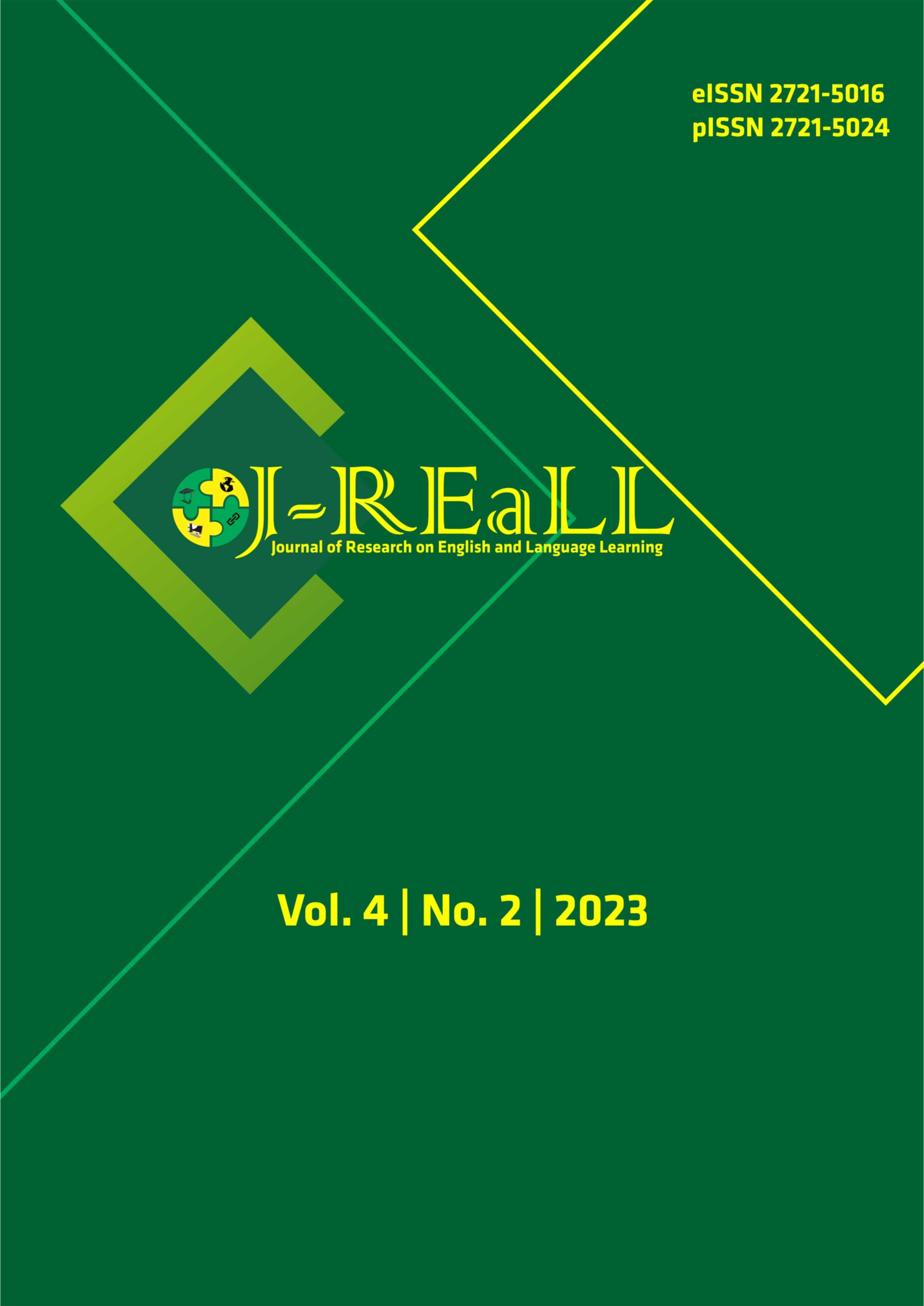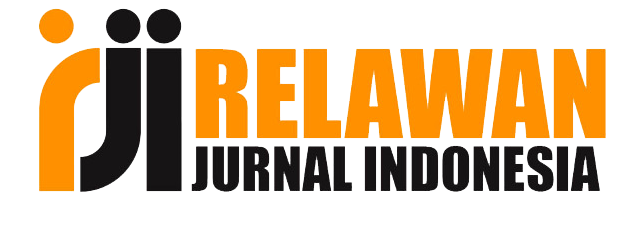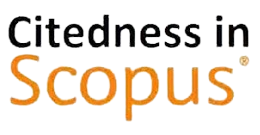Teacher candidates’ reflective thinking skills (RTSs) and pedagogical competence in EFL classrooms
DOI:
https://doi.org/10.33474/j-reall.v4i2.20096Keywords:
EFL teacher candidates, pedagogical competence, reflective thinking skills (RTSs), teacher educationAbstract
This study aimed to investigate the association between English as a foreign language (EFL) teacher candidates’ reflective thinking skills (RTSs) and pedagogical competence. Employing a correlational study, a questionnaire conveying four dimensions of RTSs and the teacher candidates’ report of pedagogical performance in the microteaching course was used to collect the data on pedagogical competence. Using Google Forms, the questionnaire was administered to 52 EFL teacher candidates. The descriptive statistics identified that the RTSs of the EFL teacher candidates were categorized in the habitual action type. Pearson Product Moment yielded that the EFL teacher candidates’ RTSs and their pedagogical performance had a high positive statistically significant correlation, as the observed sig. value was .766. This finding confirmed that RTSs bridged the theoretical-practical divide, and was found as a predictive variable for pedagogical competence. Therefore, teacher education programs need to consider developing and implementing training activities to enhance student teachers’ RTSs, enabling them to make better pedagogical practices.
References
Ary, D., Jacobs, L. C., & Sorensen, C. K. (2010). Introducition to Research in Education (8th ed.). Cengage Learning.
Asakereh, A., & Yousofi, N. (2018). Reflective thinking, self-efficacy, self-esteem and academic achievement of iranian efl students. International Journal of Educational Psychology, 7(1), 68–89. https://doi.org/10.17583/ijep.2018.2896
Azhar, N., & Mardiana, H. (2016). the English Teachers’ Competencies in English Foreign Language Learning At Ma Madani Alauddin Pao-Pao Gowa, South Sulawesi. ETERNAL (English, Teaching, Learning and Research Journal), 2(2), 221–237. https://doi.org/10.24252/eternal.v22.2016.a4
Biongan, A. A. (2015). Reflective Thinking Skills of Teachers and Students’ Motivational Preferences: The Mediating Role of Teachers’ Creativity on Their Relationship. International Journal of Novel Research in Education and Learning, 2(5), 13–25.
Cengiz, C., Karataş, F. Ö., & Yadigaroğlu, M. (2014). The Investigation of Pre-service Science Teachers’ Reflective Journals. Procedia - Social and Behavioral Sciences. https://doi.org/10.1016/j.sbspro.2014.01.751
Chee Choy, S., Yim, J. S. C., & Sedhu, D. S. (2019). Pre-service teachers’ reflection on reflective practices: A Malaysian perspective. Universal Journal of Educational Research, 7(12), 18–26. https://doi.org/10.13189/ujer.2019.071903
Choy, S. C., Yim, J. S. C., & Tan, P. L. (2017). Reflective thinking among preservice teachers: A Malaysian perspective. Issues in Educational Research, 27(2), 234–251.
Choy, S. Cp. S. O. (2012). Reflective thinking and teaching practices: A precursor for incorporating critical thinking into the classroom. International Journal of Instruction, 5(1), 167–182.
Cirocki, A., & Farrell, T. S. C. (2017). Reflective practice for professional development of TESOL practitioners. The European Journal of Applied Linguistics and TEFL, 6(2), 5–24.
DEPDIKNAS. (2005). Undang-Undang no. 14 Tahun 2005 tentang Guru dan Dosen. Departemen Pendidikan Nasional Indonesia.
Deringöl, Y. (2019). The relationship between reflective thinking skills and academic achievement in mathematics in fourth-grade primary school students. International Online Journal of Education and Teaching (IOJET), 613–622. http://iojet.org/index.php/IOJET/article/view/532
Farrell, T. S. C., & Kennedy, B. (2019). Reflective practice framework for TESOL teachers: one teacher’s reflective journey. Reflective Practice, 20(1), 1–12. https://doi.org/10.1080/14623943.2018.1539657
Farrell, T. S. C., & Kennedy, J. (2020). “My personal teaching principle is ‘safe, fun, and clear’”: Reflections of a TESOL teacher. Iranian Journal of Language Teaching Research, 8(2), 83–96.
Fen, T. S., Sam, L. C., & Meng, C. C. (2017). Changes in Teachers ’ Reflection. 4, 145–172.
Fernandes, S. R. G. (2014). Preparing Graduates for Professional Practice: Findings from a Case Study of Project-based Learning (PBL). Procedia - Social and Behavioral Sciences, 139, 219–226. https://doi.org/10.1016/j.sbspro.2014.08.064
Firdaus, L., Masiah, M., Ibrohim, I., Lestari, S. R., Dewi, I. N., Mahsul, A., & Muliadi, A. (2021). Translation of Reflective Thinking Questionnaire: A Structural Equation Model. Jurnal Penelitian Pendidikan IPA, 7(SpecialIssue), 305–311. https://doi.org/10.29303/jppipa.v7ispecialissue.1036
Ghanizadeh, A., & Jahedizadeh, S. (2017). Validating the persian version of reflective thinking questionnaire and probing Iranian university students’ reflective thinking and academic achievement. International Journal of Instruction, 10(3), 209–226. https://doi.org/10.12973/iji.2017.10314a
Halim, L., Buang, N. A., Meerah, T. S., Atay, D., Farrell, T. S. C., Al-Mahrooqi, R., Denman, C., Al-Siyabi, J., Al-Maamari, F., Anderson, N., Henderson, M., Unda, Badri, M., Alnuaimi, A., Mohaidat, J., Yang, G., Al Rashedi, A., Banegas, D., Pavese, A., … Zeichner, K. M. (2017). Inconvenient truths about teacher learning: towards professional development 3.0. Professional Development in Education, 7(1), 387–405. https://doi.org/10.1080/13540602.2016.1211523
Han, Y., & Wang, Y. (2021). Investigating the Correlation Among Chinese EFL Teachers’ Self-efficacy, Work Engagement, and Reflection. Frontiers in Psychology, 12(October), 1–11. https://doi.org/10.3389/fpsyg.2021.763234
Holdo, M. (2023). Critical Reflection: John Dewey’s Relational View of Transformative Learning. Journal of Transformative Education, 21(1), 9–25. https://doi.org/10.1177/15413446221086727
Hong, Y. C., & Choi, I. (2015). Assessing reflective thinking in solving design problems: The development of a questionnaire. British Journal of Educational Technology, 46(4), 848–863. https://doi.org/10.1111/bjet.12181
John W.Creswell J. David Creswell. (2018). Reserch Design Quslitative , Quantitative and Mixed methods Approaches. In Sage (Issue 9).
KARAKOÇ, C., & DEMİR, Ö. (2020). The Predictive Power of Turkish Teachers’ Reflective Thinking Skills Perceptions in their Problem Solving Skills Perceptions. International Journal of Education and Literacy Studies, 8(3), 12. https://doi.org/10.7575/aiac.ijels.v.8n.3p.12
Kember, D., Leung, D. Y. P., Jones, A., Loke, A. Y., McKay, J., Sinclair, K., Tse, H., Webb, C., Wong, F. K. Y., Wong, M., & Yeung, E. (2000). Development of a questionnaire to measure the level of reflective thinking. Assessment and Evaluation in Higher Education, 25(4), 381–395. https://doi.org/10.1080/713611442
Körkkö, M., Kyrö-Ämmälä, O., & Turunen, T. (2016). Professional development through reflection in teacher education. Teaching and Teacher Education. https://doi.org/10.1016/j.tate.2016.01.014
Korucu-Kis, S., & Demir, Y. (2019). A review of graduate research on reflective practices in english language teacher education: Implications. Issues in Educational Research, 29(4), 1241–1261.
Kumalasari, S. P., Setiawan, B., & Sumarlam, S. (2017). Pedagogical Competence of Indonesia Teacher Viewed From the Anecdote Writing Lesson Planning. Lingua Didaktika: Jurnal Bahasa Dan Pembelajaran Bahasa, 11(2), 146. https://doi.org/10.24036/ld.v11i2.8054
Leijen, Ä., Allas, R., Toom, A., Husu, J., Marcos, J.-J. M., Meijer, P., Knezic, D., Pedaste, M., & Krull, E. (2014). Guided Reflection for Supporting the Development of Student Teachers’ Practical Knowledge. Procedia - Social and Behavioral Sciences, 112(Iceepsy 2013), 314–322. https://doi.org/10.1016/j.sbspro.2014.01.1170
Liakopoulou, M. (2011). Teachers’ pedagogical competence as a prerequisite for entering the profession. European Journal of Education, 46(4), 474–488. https://doi.org/10.1111/j.1465-3435.2011.01495.x
Malmir, A., & Mohammadi, P. (2018). Teachers’ Reflective Teaching and Self-Efficacy as Predicators of their Professional Success: A Case of Iranian EFL Teachers. Research in English Language Pedagogy, 6(1), 117–138.
Naghdipour, B., & Emeagwali, O. L. (2013). Assessing the Level of Reflective Thinking in ELT Students. Procedia - Social and Behavioral Sciences, 83, 266–271. https://doi.org/10.1016/j.sbspro.2013.06.052
Puspitasari, Y., Widiati, U., Marhaban, S., Sulistyo, T., & Rofiqoh. (2021). The sustainable impacts of teacher action research on efl teachers in indonesia. Studies in English Language and Education, 8(3), 952–971. https://doi.org/10.24815/siele.v8i3.21388
Rahimi, M., & Weisi, H. (2018). The impact of research practice on professional teaching practice: exploring EFL teachers’ perception. Cogent Education, 5(1), 1–15. https://doi.org/10.1080/2331186X.2018.1480340
Roffey-Barentsen, J., & Malthouse, R. (2017). What is Reflection? Reflective Practice in Education and Training, 3–11. https://doi.org/10.4135/9781526402134.n2
Sabekti, A. W., Khoirunnisa, F., & Liliasari, L. (2020). Validating the Indonesian Version of Reflective Thinking Questionnaire and Investigation of the Relationship Between Pre-Service Teachers’ Reflective Thinking and Academic Achievement. 2019(July 2019), 138–144. https://doi.org/10.24071/seadr.2019.19
Sendil, C. (2015). Pre-service science teachers reflective thinking skills toward problem solving. Educational Research and Reviews, 10(10), 1449–1457. https://doi.org/10.5897/err2015.2228
Shelly, C. S., Nuraida, I., & Oktaviana, F. (2020). An Analysis of Teacher pedagogical competence in Teaching English at SMK PGRI 3 Kota Serang. Journal of English Language Teaching and Literature (JELTL), 3(1), 54–65. https://doi.org/10.47080/jeltl.v3i1.787
Slade, M. L., Burnham, T., Catalana, S. M., & Waters, T. (2019). The Impact of Reflective Practice on Teacher Candidates’ Learning. International Journal for the Scholarship of Teaching and Learning, 13(2). https://doi.org/10.20429/ijsotl.2019.130215
Soodmand Afshar, H., & Farahani, M. (2018). Inhibitors to EFL teachers’ reflective teaching and EFL learners’ reflective thinking and the role of teaching experience and academic degree in reflection perception. Reflective Practice, 19(1), 46–67. https://doi.org/10.1080/14623943.2017.1351353
Stenberg, K., Rajala, A., & Hilppo, J. (2016). Fostering theory–practice reflection in teaching practicums. Asia-Pacific Journal of Teacher Education, 44(5), 470–485. https://doi.org/10.1080/1359866X.2015.1136406
Tanang, H., & Abu, B. (2014). Teacher Professionalism and Professional Development Practices in South Sulawesi, Indonesia. Journal of Curriculum and Teaching, 3(2), 25–42. https://doi.org/10.5430/jct.v3n2p25
Töman, U. (2017). Investigation to Improve the Process of Pre-service Teachers’ Reflective Thinking Skills through an Action Research. Universal Journal of Educational Research, 5(9), 1535–1548. https://doi.org/10.13189/ujer.2017.050911
Tuncer, M., & Ozeren, E. (2012). Prospective Teacher’s Evaluations in Terms of Using Reflective Thinking Skills to Solve Problems. Procedia - Social and Behavioral Sciences, 51, 666–671. https://doi.org/10.1016/j.sbspro.2012.08.221
Uştuk, Ö., & De Costa, P. I. (2021). Reflection as meta-action: Lesson study and EFL teacher professional development. TESOL Journal, 12(1). https://doi.org/10.1002/tesj.531
Walshe, N., & Driver, P. (2019). Developing reflective trainee teacher practice with 360-degree video. Teaching and Teacher Education, 78, 97–105. https://doi.org/10.1016/j.tate.2018.11.009
Wyatt, M., & Dikilitaş, K. (2016). English language teachers becoming more efficacious through research engagement at their Turkish university. Educational Action Research, 24(4), 550–570. https://doi.org/10.1080/09650792.2015.1076731
Downloads
Published
How to Cite
Issue
Section
License
Copyright (c) 2023 Yunita Puspitasari, Desta Fitri Herawati, Muh. Fajar

This work is licensed under a Creative Commons Attribution 4.0 International License.
Authors who publish this journal agree to the following terms:
- Authors retain copyright and grant the journal right of first publication with the work simultaneously licensed under a Creative Commons Attribution License that allows others to share the work with an acknowledgement of the work's authorship and initial publication in this journal.
- Authors can separately make additional contractual arrangements for non-exclusive distribution published by the journal (e.g., publish it in a book), with an acknowledgement of its initial publication in this journal.
- Authors are allowed and encouraged to send their work via online (e.g., in the institutional repositories or their website) after published by the journal.






















